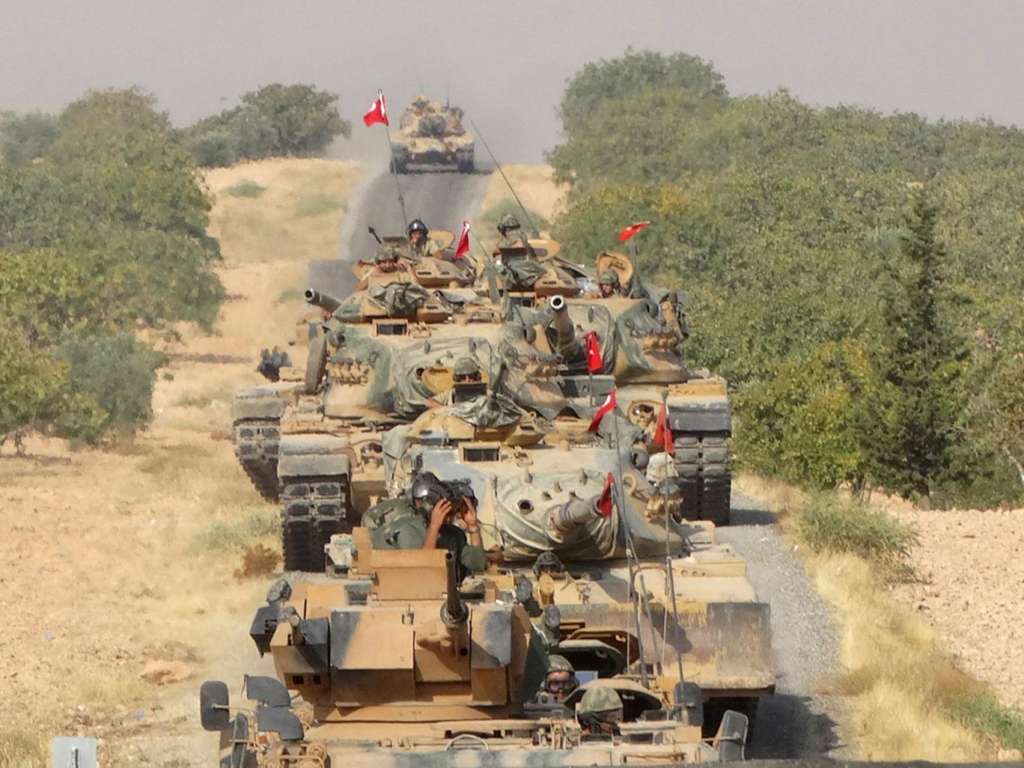Beirut-Turkey’s cross-border operation in Syria and the forced move of the Kurdish militias from the Euphrates River’s west to its east have dealt a severe blow to Kurdish separatists who were planning on establishing their autonomous political federation in northern Syria.
Turkey’s operation is seen by some experts as the result of an international agreement, which the Assad regime could be part of.
Both Turkey and the Syrian regime are aware that any additional military advance in the area east of Aleppo governorate would pave way for the Kurd’s announcement of a federation in northern Syria.
This was only possible before the Turkish cross-border operation that aims to stop Kurds from gaining control on an area between the towns of Kobani in the east and Afreen in the west. This area borders Turkey and spans 50 kilometers starting from Jarablus, which last Wednesday fell under the control of the Turkish army and its allies from the moderate Syrian opposition.
In July, the head of the U.S. Central Intelligence Agency said he was not optimistic about the future of Syria remaining one country.
“I don’t know whether or not Syria can be put back together again,” John Brennan said.
The discussions on dividing the country are based on several scenarios. One of them calls for forming a Kurdish entity in northern Syria, and another area that stretches from Damascus to Latakia and which falls under the regime’s rule.
The third scenario would be a Kurdish state in the North, a Sunni entity in central Syria that stretches to the east, an Alawite state on the coast and a Druze entity in the South. With such a plan, Damascus and Homs would be placed under the rule of the Alawite state.
However, not all scenarios are clear. They face two major obstacles – first the rejection of the opposition forces to divide Syria and second fears that granting Kurds their own entity would raise the objections of Turkey and Iran.
The obstacles have grown amid differences between the U.S. and Russia – the two main countries directly involved in finding a solution to the Syrian war – over the fate of Assad.
Added to that is a sign that the Assad regime, following talks between Iranian and Turkish officials last week and five meetings between Syrian officials with a Turkish leader, rejects the establishment of an area with Kurdish influence.
A high-ranking Kurdish source told Asharq Al-Awsat newspaper that Russia “has not taken any negative stance towards the Kurds.”
The source stressed that the Turkish-Iranian rapprochement had caused the Assad regime to reject the formation of the Kurdish entity in northern Syria.
“The regime and Turkey are frustrated by the achievements we have made in Manbij and our advance towards al-Bab and Reef Aleppo,” he said.
Several months ago, Russian Deputy Foreign Minister Sergei Ryabkov said Syria could become a federal state if that model works in the country.
His statement was in harmony with Brennan’s remarks on the future plan to have federalism in Syria.
It seems that not only the Kurds would benefit from such a plan but also Alawites, who are seeking the protection of Russia.
Yet, despite the ambitions of several factions to have federalism in Syria, George Sabra, a Syrian opposition official, said that discussions about the issue “are unrealistic.”
“The entire Syrian population and not just a few factions should participate” in such a process, he said.
“Discussions on the future of Syria as a central state or as federations can only be made when the country is returned to the Syrian people and only when the regime, which has been ruling it for the past 50 years, is ousted,” he said.
“The Syrian people did not rise (against the regime five years ago) to establish federalism,” Sabra stressed. “It rose against the regime to establish democracy as part of a united Syria.”
“I don’t think that the Druze, Christians, Sunnis, Alawites, Kurds and Assyrians would be able to enjoy democracy in sectarian mini-states, cantons and federations,” he added.
Sabra lamented that transforming the Syrian crisis into a regional and international battle where the interests of states are intertwined, has stopped the different sides from reaching a political solution.
“The solution has become regional and international. It is no longer made in Syria,” he said.
Despite the converging views on federalism, the solution to the country’s crisis is mainly linked to deals between the U.S. and Russia, which continue to disagree on vital issues such as the fate of Assad in post-war Syria.
